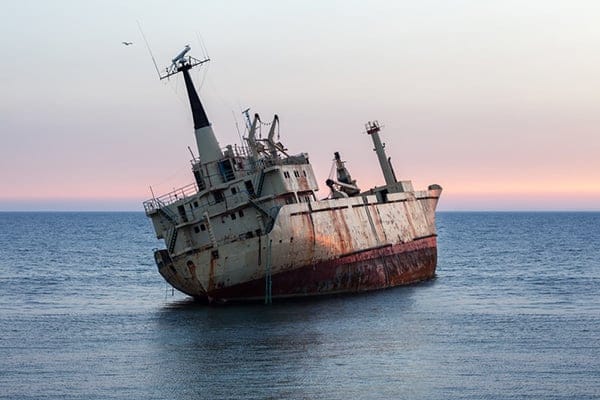
In June 2019, the US Supreme Court issued two opinions that significantly affect the maritime industry. The first concerned the applicable law (federal versus state) to be applied for claims made on the Outer Continental Shelf (OCS). The second determined whether punitive damages were available to plaintiffs bringing an unseaworthiness cause of action. 1
These opinions provided much-needed clarity to splits at the courts of appeals level.
The OCS Case
In the Parker Drilling Mgmt. Servs. v. Newton, 139 S. Ct. 1881 (2019), decision, federal law reigned on the OCS, but adjacent-state law remains an important gap filler. In a unanimous decision, the Supreme Court held that, when determining controlling law for claims made on the OCS, adjacent-state law is not relevant when federal law addresses the issue.
Newton worked for Parker Drilling on drilling platforms off the California coast. His shifts were 12 hours, and then he was on standby for the other 12 hours; he was paid only for the time he worked, not the time he was on standby. He filed suit against Parker alleging that Parker was in violation of California's wage laws and that he and other Parker workers were owed overtime wages and minimum wages for time they were on standby. Parker countered that federal law (specifically the Fair Labor Standards Act [FLSA]) governed wages on the OCS and that there was no gap in federal wage law for California law to ostensibly fill.
The parties agreed that the platforms on which Newton worked were subject to the Outer Continental Shelf Lands Act (OCSLA). The OCSLA gives the federal government exclusive jurisdiction over, and extends federal law to, the OCS seabed. Newton's claim that state law applied to his causes of action on the OCS originate in the following language found in the OCSLA.
To the extent that they are applicable and not inconsistent with this subchapter or with other Federal laws and regulations of the Secretary now in effect or hereafter adopted, the civil and criminal laws of each adjacent State … are declared to the be the law of the United States….
Source: 43 U.S.C. § 1333(a)(2)(A).
The district court sided with Parker, finding that state law on the OCS only acts as a federal law gap filler under OCSLA. The Ninth Circuit Court of appeals vacated the decision and remanded. In splitting from Fifth Circuit precedent, it interpreted § 1333(a)(2)(A) to mean that, as long as it was not inconsistent with federal laws, state law could be applied on the OCS whenever it is applicable to the subject matter at issue. The Ninth Circuit held that, because California's wage laws did not conflict with the federal FLSA, Newton was free to pursue a cause of action under the more generous California law.
The US Supreme Court reviewed the issue of whether Newton could hold Parker liable for violations of California's wage laws in a claim originating on the OCS if these California laws were not inconsistent with federal wage laws. Newton argued that, because California's wage laws were not inconsistent with the federal FLSA (with the FLSA including a provision that permits more protective state wage and hour laws), he could choose to apply California's laws against Parker.
After reviewing the OCSLA statute and its prior case law interpreting the statute, the Court agreed with Parker (and the Fifth Circuit) that "[a]ll law on the OCS is federal, and state law serves a supporting role, to be adopted only where there is a gap in federal law's coverage." The OCSLA statute is clear that federal law controls, but the Court made clearer that state law is only adopted as federal law when a gap in federal law needs to be filled. If a federal law applies to a claim on the OCS, it will have primacy over an equally relevant state law. Applied to Newton's case: a federal wage law exists, thus there is no gap for California law to fill.
The Court did acknowledge, however, that there are "substantial" gaps in federal law for causes of action that occur on the OCS. But it is only in this instance that state law governs.
Punitive Damages and Unseaworthiness Case
Dutra Grp. v. Batterton, No. 18-266, 2019 WL 2570621 (June 24, 2019), held that punitive damages are not available in an unseaworthiness cause of action. In a slightly more contested 6–3 decision than the OCS case above, the US Supreme Court held that a plaintiff cannot obtain punitive damages in an unseaworthiness cause of action. In a straightforward opinion, the majority first examined prior case law on damages awarded in unseaworthiness causes of action but could not find any relevant decision that supported an award of punitive damages for a finding of unseaworthiness.
The Court then looked at Congressional policy toward maritime damages and reaffirmed its longstanding precedent that punitive damages are not available under the Jones Act. If Congress had not awarded punitive damages under the Jones Act, the Court was not going to create such an award for unseaworthiness. Finally, in further deference to lawmakers, the Court refused to create a punitive damages remedy for unseaworthiness causes of action under the guise of public policy.
This decision resolved a split between the Fifth and Ninth Circuits on the issue of available punitive damages for a maritime tort, with the Court again ultimately siding with the Fifth Circuit. For maritime injuries, punitive damages remain only available if a plaintiff can prove his employer willfully and wantonly withheld maintenance and cure. See Atlantic Sounding Co. v. Townsend, 557 U.S. 404 (2009).
Opinions expressed in Expert Commentary articles are those of the author and are not necessarily held by the author's employer or IRMI. Expert Commentary articles and other IRMI Online content do not purport to provide legal, accounting, or other professional advice or opinion. If such advice is needed, consult with your attorney, accountant, or other qualified adviser.
Footnotes

